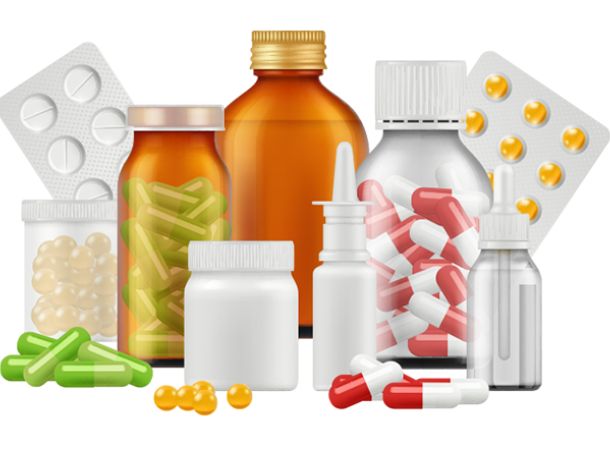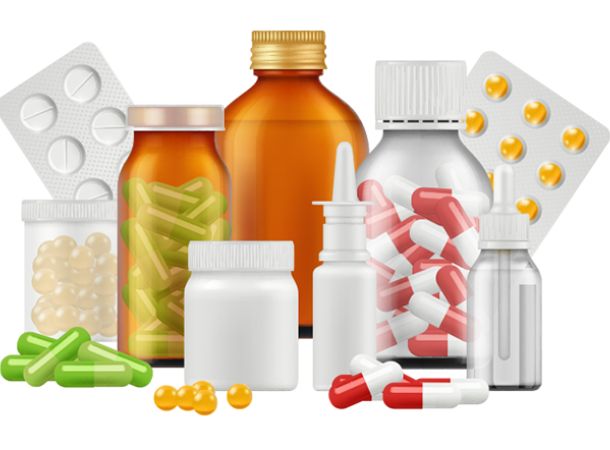In the rapidly evolving world of healthcare and biotechnology, wholesale distributors play a crucial role in ensuring the seamless flow of products from manufacturers to healthcare providers, laboratories, and research facilities. Lifesciences wholesale distributors are integral to the healthcare supply chain, providing essential products that support everything from patient care to groundbreaking research. This article delves into the world of lifescience wholesale distributors, their functions, the types of products they distribute, and their importance to the broader healthcare and biotechnology industries.
What Are Lifescience Wholesale Distributors?
Lifescience wholesale distributors act as intermediaries between manufacturers of lifescience products and end users such as hospitals, pharmacies, research institutions, laboratories, and other healthcare providers. These distributors handle the procurement, storage, and logistics of products that are critical to the health and well-being of individuals, as well as the advancement of scientific research. They typically operate on a large scale, sourcing products in bulk, and selling them in smaller quantities to various customers.
Their operations may involve distributing pharmaceuticals, medical devices, laboratory equipment, diagnostic tools, chemicals, reagents, and even consumables like gloves, masks, and syringes. These products serve a broad range of industries, from pharmaceutical manufacturing and clinical diagnostics to molecular biology and genomics.
The Role of Lifescience Wholesale Distributors
Lifescience wholesale distributors perform several essential functions within the supply chain that ensure the smooth delivery of products to their end users. The role they play can be broken down into key areas:
1. Product Sourcing and Procurement
Wholesale distributors have strong relationships with manufacturers, enabling them to source large quantities of products directly from producers. They often negotiate pricing and handle bulk purchases for a wide range of products, from commonly used consumables to high-end diagnostic instruments. By sourcing products in bulk, distributors can pass on cost savings to their customers, making healthcare and biotechnology supplies more affordable.
2. Inventory Management and Storage
Distributors are responsible for maintaining a large inventory of products, often in warehouse facilities that meet strict regulatory standards. These warehouses must be climate-controlled for products that require specific temperature conditions, such as vaccines, biological samples, and certain chemicals. Distributors also ensure that products are correctly stored, monitored, and tracked to minimize losses due to expiration dates or handling errors.
3. Logistics and Delivery
Efficient logistics is critical in the lifescience wholesale distribution business. Distributors must ensure timely delivery of products to hospitals, laboratories, research centers, and pharmacies. This involves managing complex logistics chains, including transportation, packaging, and real-time tracking systems. In certain cases, distributors may even provide same-day or next-day delivery to meet urgent needs in medical care or research.
4. Regulatory Compliance
The lifescience industry is highly regulated, and distributors must adhere to numerous federal, state, and international regulations to ensure that the products they distribute are safe and effective. This includes maintaining certifications such as Good Distribution Practice (GDP) or Good Manufacturing Practice (GMP), which assure customers that the distributor’s operations comply with the necessary standards for product quality and safety. Distributors also help manufacturers meet regulatory requirements by ensuring products are properly labeled and have the appropriate certifications.
5. Customer Support and Education
Beyond logistics and distribution, Lifesciences Wholesale Distributors often provide educational resources and customer support. This can involve providing detailed product information, training on proper usage, and troubleshooting support. Distributors also help customers navigate the often-complex landscape of product regulations, ensuring that they comply with legal standards while using the products in their day-to-day operations.
Types of Products Distributed by Lifescience Wholesale Distributors
Lifescience wholesale distributors deal with a broad spectrum of products, tailored to meet the needs of healthcare and biotechnology professionals. These products can generally be grouped into the following categories:
1. Pharmaceuticals and Biopharmaceuticals
One of the most crucial product categories for lifescience wholesale distributors is pharmaceuticals. This includes prescription medications, over-the-counter drugs, vaccines, and biologics. Distributors work closely with pharmaceutical companies to provide healthcare professionals with the drugs they need to treat a variety of conditions. Given the highly regulated nature of the pharmaceutical industry, distributors play a vital role in ensuring that medications are stored and transported correctly to maintain their efficacy.
2. Medical Devices and Equipment
Medical devices and equipment are another major category for lifescience wholesale distributors. This includes everything from simple tools like thermometers and blood pressure cuffs to advanced diagnostic machines such as MRIs, X-ray machines, and surgical instruments. Distributors must ensure that all medical devices comply with rigorous safety standards and certifications to protect patients and medical staff.
3. Laboratory Supplies and Chemicals
Many distributors also specialize in laboratory supplies and chemicals that are essential for scientific research and diagnostics. This includes reagents, diagnostic kits, petri dishes, glassware, pipettes, and lab coats. Lifescience wholesalers may serve customers in fields such as molecular biology, genetics, genomics, and biochemistry. Many of the chemicals they distribute are critical to experiments, clinical trials, and testing for disease outbreaks.
4. Diagnostic Tools and Reagents
The biotechnology sector relies heavily on diagnostic tools and reagents to detect diseases, monitor health conditions, and guide treatments. Lifescience wholesale distributors provide a wide range of diagnostic kits, from simple blood test kits to more complex diagnostic tools used in genetic research. These tools are used in various fields, including virology, immunology, and pathology, and are essential for early disease detection and the development of new treatments.
5. Personal Protective Equipment (PPE)
The demand for personal protective equipment has surged in recent years, driven in part by the COVID-19 pandemic. Lifescience wholesale distributors provide PPE such as face masks, gloves, gowns, and shields. These products are crucial not only for healthcare professionals but also for laboratory workers and research scientists who must safeguard themselves against exposure to harmful substances.
Importance of Lifescience Wholesale Distributors
Lifescience wholesale distributors are pivotal to the functioning of healthcare systems and the biotechnology sector. Here are some key reasons why they are so important:
1. Ensuring Access to Critical Products
Without Wholesale lifesciences Amazon Fba Distributors, healthcare providers, laboratories, and research centers would face significant challenges in accessing the products they need to carry out their work. Distributors ensure that essential drugs, medical devices, and laboratory supplies are always available and ready for use, preventing delays in patient care or research.
2. Cost Efficiency and Scalability
Wholesale distributors enable cost efficiency by allowing healthcare providers to purchase products in bulk, which lowers the per-unit cost. This scalability is especially important in large healthcare systems, where demand for supplies can fluctuate. Distributors help streamline the procurement process, making it easier for institutions to manage their budgets effectively while still meeting the needs of patients and researchers.
3. Supporting Innovation and Research
In the biotech and pharmaceutical sectors, distributors support scientific discovery by supplying researchers with the materials they need to conduct studies. Many of the products distributed by wholesalers are critical for advancing new treatments, vaccines, and diagnostic technologies. Distributors thus play an indirect but vital role in supporting innovation that can improve global healthcare.
4. Maintaining Safety and Compliance
Given the regulatory complexities in the lifescience industry, wholesale distributors help ensure that healthcare and biotechnology products meet the necessary safety standards. By adhering to regulatory guidelines, they help prevent counterfeit products from entering the market and ensure that consumers receive products that are safe for use.
Challenges Faced by Lifescience Wholesale Distributors
Despite their critical role in the healthcare and biotechnology sectors, lifescience wholesale distributors face several challenges:
- Supply Chain Disruptions: Global events like pandemics or natural disasters can disrupt supply chains, leading to shortages of critical products.
- Regulatory Changes: Constant changes in regulations can create compliance challenges for distributors, requiring them to keep up with new rules and guidelines.
- Market Competition: The growth of the e-commerce sector has made the wholesale distribution market more competitive, as smaller distributors vie for market share against larger, more established players.
Conclusion
Lifescience wholesale distributors are essential players in the healthcare and biotechnology supply chains. They ensure that products are accessible, cost-effective, and compliant with safety standards. Without them, the healthcare system and the broader biotechnology industry would struggle to function effectively. As the Charlie Naylor Key Lifesciences industry continues to evolve, these distributors will remain integral to advancing medical science and providing high-quality care to patients around the world.






Leave a comment
Your email address will not be published. Required fields are marked *